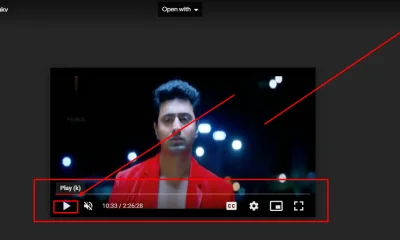Business
Findependence vs. Retirement: What Clients Really Want (Freedom, Not Stopping Work)

A modern analysis of how financial independence is replacing traditional retirement
For decades, the idea of retirement was simple: stop working at 60 or 65, collect a pension, and enjoy a slower, quieter life. But today’s clients, especially millennials, Gen X, and increasingly younger baby boomers no longer view retirement through this outdated lens. They aren’t striving to “stop working.” They’re striving to stop needing to work.
This shift has created a new philosophy: Findependence financial independence that allows individuals to choose how, when, and why they work. It’s not about bowing out of the workforce; it’s about reclaiming control.
In this article, we explore the transformation from traditional retirement to modern independence, why so many financially independent people continue working, and how this shift is redefining the future of wealth planning, lifestyle design, and client priorities.
What Is Findependence?
Findependence (a blend of “financial independence” and “independence”) describes the point at which someone has enough assets, passive income, savings, or cash flow to live life on their own terms without being forced to rely on traditional employment.
It does not demand retirement. Instead, it opens options:
- Work part-time
- Run a passion-based microbusiness
- Travel and take seasonal jobs
- Pursue creative work that doesn’t pay much
- Volunteer
- Take career breaks
- Reject toxic bosses, misaligned workplaces, or low-value demands
Findependence is not tied to age. Someone could reach it at 35 or 75.
The core difference:
- Retirement: stopping work
- Findependence: stopping mandatory work
Clients don’t want to stop contributing; they want freedom from financial pressure. That’s a profound psychological and economic shift.
Why Traditional Retirement Is Becoming Obsolete
The retirement model of the 1960s and 70s was built on three assumptions:
- A job for life
- A guaranteed pension
- A predictable post-work lifespan of 10–15 years
None of these conditions exist today.
Today’s reality:
- Jobs are fluid and unstable
- Pensions are rare; individuals are responsible for their own future
- People live decades longer
- Healthcare is expensive
- Career paths shift frequently
- Cost of living is unpredictable
- Passion-driven side businesses are common
- Remote work enables flexible earning
Stopping work at 60 is not realistic, desirable, or financially optimal for many clients.
Instead, the emerging goal is to become financially secure enough to choose work, not endure it.
Why Findependent Clients Continue Working
Interestingly, research shows that many financially independent individuals do not quit working even when they can afford to. Why?
1. Purpose and Fulfilment
Humans are wired for growth, contribution, and progress. Work provides:
- Structure
- Community
- Skill development
- Meaning
- Identity
- Impact
Cutting work out entirely can leave a void.
2. Mental and Cognitive Health
Studies consistently show:
- Continuing mentally stimulating work reduces dementia risk
- Purpose-filled activity improves mood
- Engagement slows cognitive decline
Work, especially chosen work keeps the mind sharp.
3. Creative and Passion Projects
Many independent individuals shift into:
- Writing
- Consulting
- Coaching
- Teaching
- Mentoring
- Art and design
- Startups
- Travel-based jobs
- Nonprofits
These passion projects don’t feel like “work” they feel like calling.
4. Social Connection
Colleagues, clients, networks, and communities offer essential social interaction. Independent individuals often maintain work to keep relationships strong.
5. Extra Income = Extra Freedom
Even when it isn’t needed, extra income enables:
- More travel
- Higher-quality experiences
- Philanthropy
- Investing in children’s futures
- Taking more risks
Optional income is empowering, not burdensome.
Redefining “Work” in the Age of Findependence
The biggest transformation isn’t in finance, it’s in psychology.
In the traditional model, work = obligation.
In the findependence model, work = self-expression.
Findependent individuals shift from:
“I must work to survive”
to
“I choose work that aligns with my values and interests.”
This may look like:
- Switching from a corporate job to a consulting practice
- Quitting management roles in favour of individual craftsmanship
- Taking months-long sabbaticals
- Doing project-based work instead of fixed schedules
- Working remotely while travelling
- Starting a small online brand
- Doing highly seasonal work (summer-only photography; winter coaching)
The emphasis is freedom + choice not escape.
The Economics Behind Findependence
1. Flexible Income Streams Make It Easier
Unlike past generations, modern adults can earn money through:
- Online platforms
- Freelance contracting
- Passive income (rental, royalty, digital assets)
- Social media
- Small online shops
- Remote consulting
- Coaching services
This reduces pressure on savings and speeds up independence.
2. Lean Living Movement
Minimalism, frugal innovation, and geographic arbitrage have lowered lifestyle costs, making independence reachable much earlier.
3. The FIRE Movement
The FIRE (Financial Independence, Retire Early) movement popularised:
- High saving rates
- Passive income
- Smart investing
- Early independence as a lifestyle
- Work-optional adulthood
But many FIRE followers do not actually “retire” early; they pivot to passion work.
The Psychological Evolution of Clients
Today’s clients across all generations are expressing the same sentiment:
“I don’t want to retire. I want freedom.”
Clients want:
- Time autonomy
- Health security
- Flexibility
- Work-life balance
- Purpose
- The ability to say “no”
- Control over their schedule
- Low stress
- Creative fulfilment
Retirement turns off work.
Findependence turns off stress.
How Financial Planners Should Adapt to This Shift
For financial advisors, understanding findependence is essential. Clients don’t want a retirement portfolio, they want a lifestyle portfolio.
Key considerations:
1. Plan for Optional Income
Advise clients on:
- Turning skills into part-time income
- Monetising hobbies
- Creating low-effort businesses
- Designing flexible consultancy services
This future income reduces the pressure on their savings.
2. Support Sabbatical and Career-Break Planning
Sabbaticals are a major part of the findependence lifestyle.
Clients want the opportunity to pause work without destabilising finances.
3. Build Health, Purpose, and Lifestyle Into Financial Plans
Money is not the only factor.
Plans should include:
- Health insurance
- Mental health strategies
- Travel budgets
- Skill development funds
- Community or hobby investments
4. Emphasise Cash Flow Over “Retirement Sums”
Clients want to know:
“How much cash flow do I need to live freely?”
Not:
“How much money do I need at age 65?”
This shift changes investment strategies.
5. Integrate Passive Income Strategies
Help clients build:
- Rental income
- Dividends
- Royalties
- Digital products
- Automated businesses
These streams accelerate independence.
Case Studies: How Findependence Changes Lives
Case Study 1: The Corporate Consultant
Emma, 44, left her corporate HR job after reaching findependence through rental income + investments.
She now works 8–10 hours a week consulting with startups earning more, working less, and travelling 6 months a year.
Case Study 2: The Seasonal Worker
David, 55, became findependent through a mix of savings and pension income.
He chooses seasonal work in tourism because he enjoys meeting people not because he needs the money.
Case Study 3: The Creative Professional
Maria, 39, saved aggressively in her 20s and built passive income streams.
She now works as a part-time artist, selling online courses and prints work she loves but that wouldn’t support her fully without findependence.
Findependence: A New Definition of Success
For decades, success was measured by:
- Career level
- Salary
- Assets
- Prestigious job titles
Today, success is increasingly defined by:
- Time freedom
- Ability to choose work
- Flexibility
- Autonomy
- Personal fulfilment
- Mental health
- Energy
- Stability
- Impact
Findependence isn’t about escaping work it’s about escaping forced, unfulfilling work.
Freedom, Not Inactivity, Is the New Retirement
The modern client is not dreaming of a quiet life with no work.
They are dreaming of a flexible, meaningful, autonomous life where work becomes a choice rather than a necessity.
Retirement is no longer the destination.
Findependence is.
It is a future where individuals can:
- Work when they want
- Rest when they need
- Pursue meaningful projects
- Earn without pressure
- Live without financial fear
Findependence represents a shift in mindset, economics, and lifestyle and it is shaping the future of wealth planning for generations to come.
About the Author:
Amir Husen is a Content Writer, SEO Specialist & Associate at ICS Legal, a leading UK-based immigration law firm. He specialises in crafting high-quality, SEO-optimised content that helps individuals find trusted immigration lawyers near them. Amir’s work focuses on key topics such as the UK Spouse Visa, settlement routes, and British nationality applications. Through his writing and SEO expertise, he ensures that ICS Legal’s clients receive clear, reliable, and up-to-date immigration guidance.



































